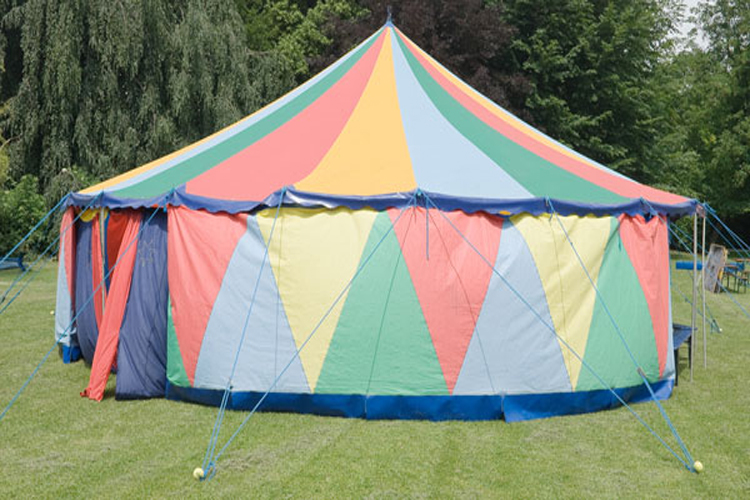Love to camp? Love to leave civilization behind and strike out for the great outdoors? Whether you’re an RV camper or a tent under the stars type, there are useful points to remember in order to make camping fun for yourself as well as the next guy. How well do you know outdoor etiquette?
Which of the following is considered safe camping behavior?
- Camping in a giant 10-man multi-colored circus tent
- Drinking from a crystal clear stream
- Informing others of your plans prior to setting off into the woods
If you said camping in a circus tent, you owe your fellow campers an apology. A brightly colored item can be quite useful for marking a trail or being discovered if you’re lost, but most people would rather not camp next to giant Duplo blocks. Much like playing a bugle reveille at dawn, this behavior could actually be the opposite of safe.
 If you said drinking from a stream, you might want to revisit the science lesson about invisible germs and microbes. One key to not ruining your camping vacation is knowing and drinking from a reputable water source, or having a very good water purifier.
If you said drinking from a stream, you might want to revisit the science lesson about invisible germs and microbes. One key to not ruining your camping vacation is knowing and drinking from a reputable water source, or having a very good water purifier.
Obviously, number three is the correct answer. However fun it may be to strike out on your own, it’s incredibly unsafe if no one knows where you planned to be or for how long. Ideally, take a buddy, but ALWAYS tell someone your plans.
Which of the following cleanliness tips is considered good camping etiquette?
- Wash everything with soap. Then wash it again to be sure it’s clean.
- If you clean fish at a campground, use a cleaning station or area well away from the dock, campsites or picnic tables.
- Bury all garbage except food waste. That you can spread around for animals.
From childhood we’ve been taught to scour everything with soap, but soap can be very bad for fish and a lake’s delicate ecosystem. If you must use soap, use a time-honored plant-based product like Castile, or a biodegradable product. Consider cutting down or avoiding it altogether if you can; contrary to what Palmolive would have you believe soaps and detergents aren’t always necessary. Artificial fragrances are very attractive to insects you’d rather not attract as well.
As for burying your garbage, it will likely be dug up. Food scraps tossed around the camp site will attract wildlife you would probably rather admire from a distance. Feeding wild animals, either by tossing scraps or attempting to bury them, is not only dangerous to you but disrupts the feeding habits of animals meant to find their own food (and not Doritos).
The correct answer is the second one, clean your catch at an approved cleaning station, not in your camp site and NOT on an eating surface like a picnic table. If you’re on a boat, dispose of fish remains by cutting them into small pieces and dropping them into water at least 50 feet deep – again to avoid discovering firsthand why the animals you’ve attracted are called “wild”life. Never drop fish remains into a body of water other than where they were extracted, as this can spread aquatic and wildlife diseases.
For more information on safe, responsible camping, check out this PDF booklet from the National Park Service: http://www.nps.gov/isro/planyourvisit/upload/LNT%20Booklet.pdf
And to practice safe, responsible camping, come see us soon at Texoma Shores!

